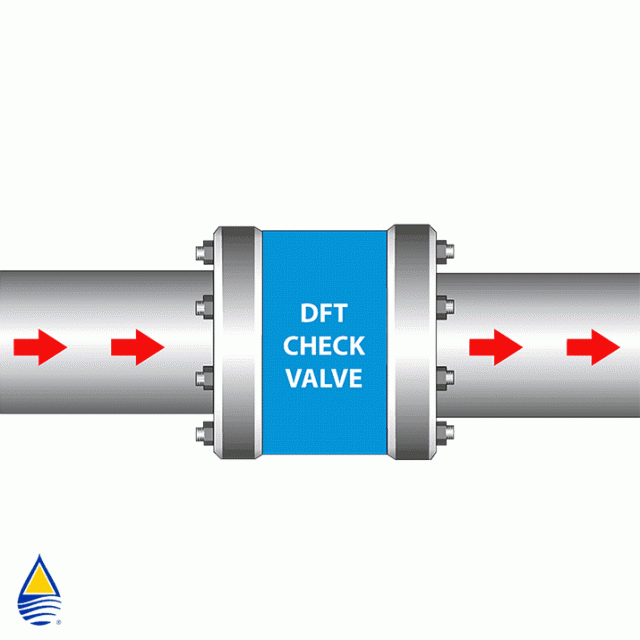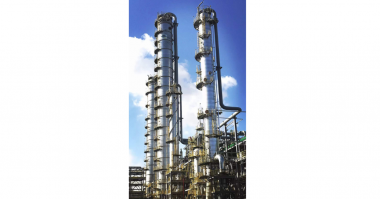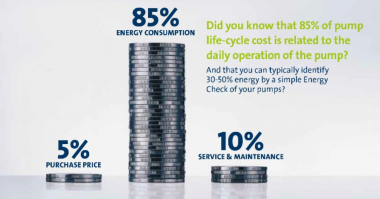Author: Bruce Ellis, Triangle Fluid Controls, Ltd.
Not all styles of check valves are suitable for different flow directions. It is important to consider this when designing a system so the correct check valve can be specified. This can increase the performance and life span of the components in your system. Given correct information, DFT axial flow centre guided check valves can be customized to most applications. If we know the media, its specific gravity and system design specifications, pressure, flow rate, temperature, etc., a valve can be customized to suit your application.
Horizontal Flow: This is the most common of the flow directions and all check valves will work in this situation. The question then becomes: “How do you chose one valve style over another?” It could be as simple as initial cost or lead time. This can be easily offset by the advantages centre guided valves have over swing check and dual door designs. The main benefit being the virtual elimination of water hammer, thus making the system more reliable and less troublesome. Maintenance and downtime are costly.
Vertical Flow (Up): This installation is common in mine de-watering and sump applications, or where space is at a premium. It is important to remember any foreign matter introduced into the system, such as sand, can settle on the closed valve causing it to not open or close properly. If we are aware of this, modifications can be made to help prevent the problem. Again, since spring assisted axial flow valves don’t require backflow to aid in closing, water hammer is not an issue and the system will work smoother.
Vertical Flow (Down): This is the most difficult flow direction for check valves to overcome. This orientation can be found in boiler supply lines and occasionally skid designs that are very space-limited. Some designs, such as swing checks, cannot be used in this situation, as they will open but not close. The spring assisted centre guided valves can be made to operate in this orientation. Given the static head pressure the valve is subject to, we can build the valve with a spring that allows for proper operation.
It is important to note that the greater the amount of information given, the easier it is to make an educated buying decision. DFT Check Valves come in different styles, wafer-flanged and NPT, to satisfy most requirements. They are also available in exotic alloys and can be customized to suit most applications.
http://test.empoweringpumps.com/white-papers/triangle-fluid-dft-key-considerations-make-designing-fluid-gas-flow-systems





Comments